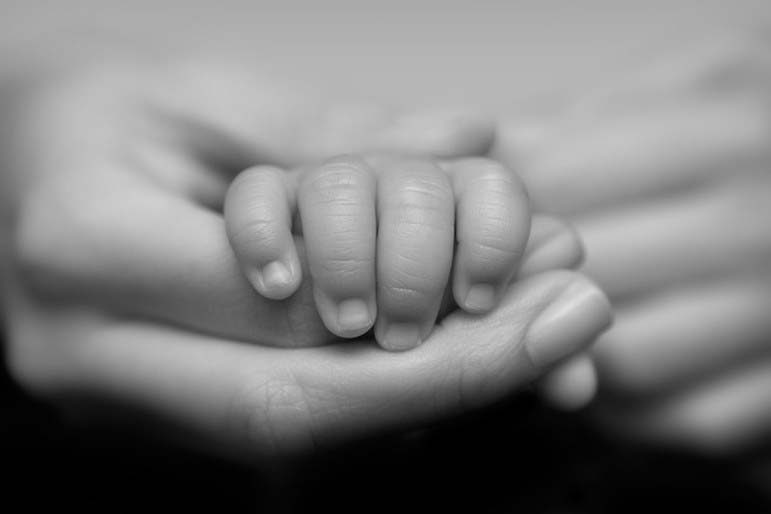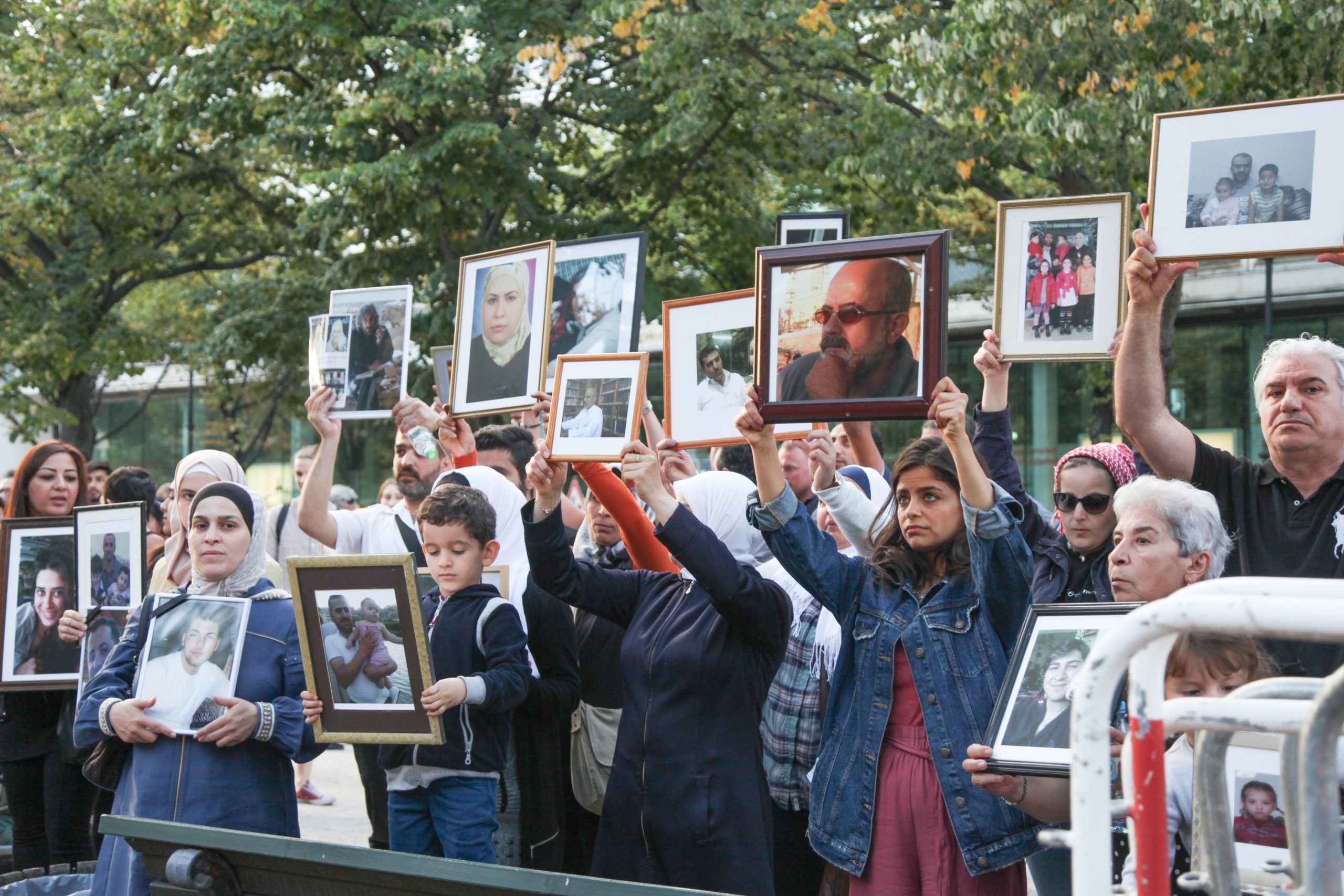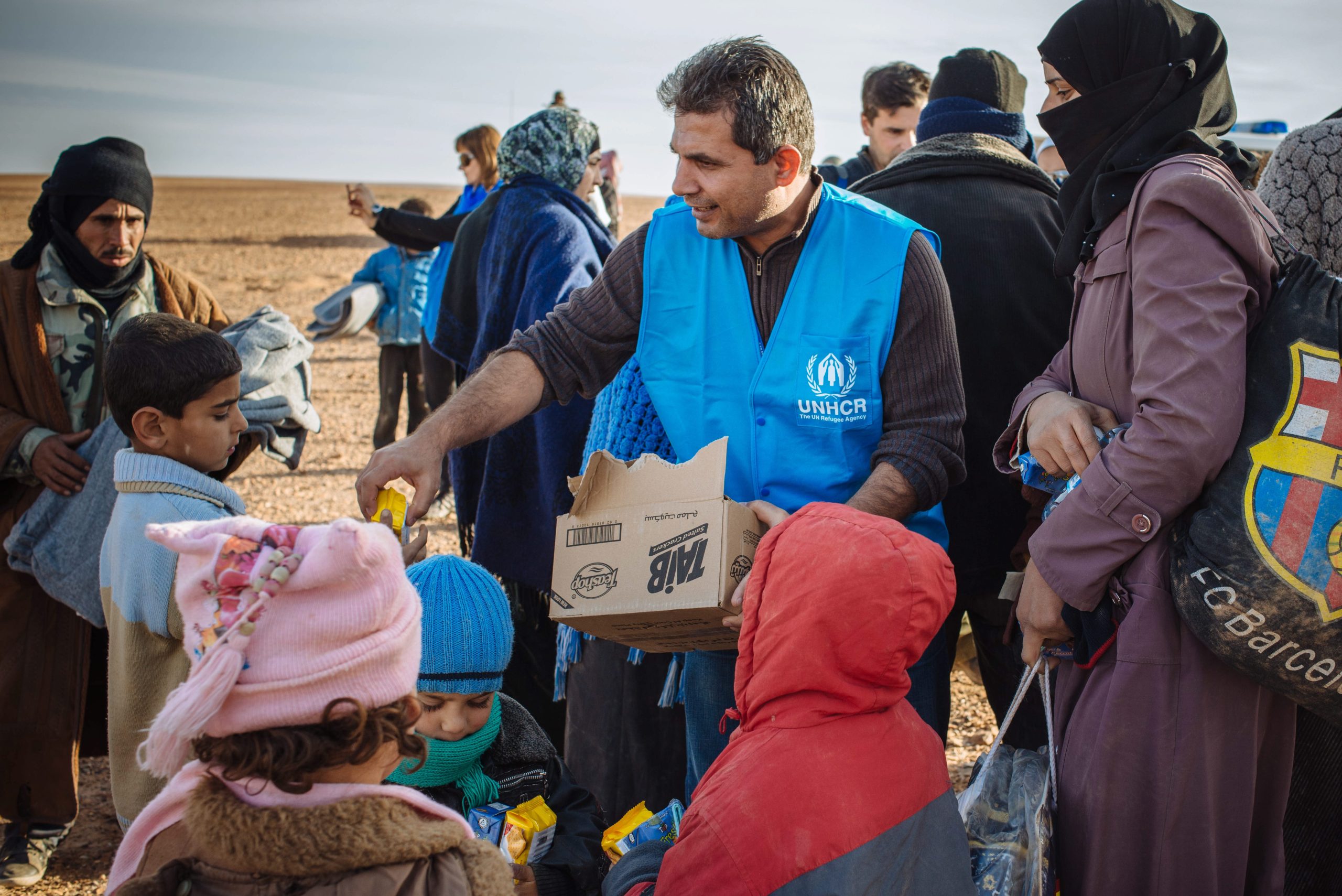
With reporting from Riham Sheble
In December of 2012, Mary (not her real name) was working in the human resources department of a major company in Qatar, heavily pregnant and unmarried.
The Filipina expat knew that giving birth without a husband would get her in trouble here, but she was out of options.
The baby’s Turkish father had left the country for good. She could not follow suit because she had started falling behind on her high-interest loan payments to a man who lent her QR50,000.
She had hoped to use the money to start a home business, and gave him her passport to secure the loan. He filed a case against her with the police nonetheless.
Within weeks, Mary gave birth to a healthy baby boy at a private hospital in Doha. But staff there called the police when she was unable to present a marriage certificate.
Mary and her child spent 10 months in jail, and she was then moved to a government-run detention center, which would presumably process her paperwork to be sent home.
This is where her story gets complicated.
When expats are convicted of crimes in Qatar, they are typically ordered to serve their sentences and then be deported immediately.
But people like Mary, who get in over their heads in debt, and others with unfinished business, can get stuck in a legal limbo for months, if not years.
Detention center
Mary first contacted Doha News in 2012, sparking a story about the fate of unmarried pregnant women in Qatar. Through friends, we came to know she had served her sentence for giving birth out of wedlock, but that her legal troubles would soon land her in jail again.
Once Mary was released from prison, she was sent to a deportation center, where many expats are housed before being sent home.
Following a visit to Qatar last year, François Crépeau, the United Nations special rapporteur on the human rights of migrants, strongly criticized these centers, specifically the presence of children at these facilities.
He said:
“Children should never find themselves in detention: migrant women with children should always be hosted in shelters.”
While there, Mary tried to alert authorities that she still had a debt case pending, mindful of the fact that time spent in a detention center did not count as jail time.
But it wasn’t until staff from the Qatar Foundation for Combating Human Trafficking (QFCHT) came to visit the deportation center, and transferred all babies and their mothers there to their own facility in Abu Hamour, that her legal problems came to light.
That’s when Mary and her now 15-month-old son were taken back into police custody. She is now staying at a jail in Najma, awaiting her next court case to move forward.
Legal context
Like many other Gulf states, Qatar’s judicial system comes down hard on those who dodge their debts, imposing stiff penalties for fraud and for failing to repay loans.
The punishment for just one bounced check ranges from a jail term of three months to three years, and/or a fine of around QR3,000.
 If you have multiple bounced checks, you can receive multiple jail sentences, which do not usually run concurrently. Separately, the creditor may also pursue civil action to recoup the money.
If you have multiple bounced checks, you can receive multiple jail sentences, which do not usually run concurrently. Separately, the creditor may also pursue civil action to recoup the money.
One bounced check will not usually land you in jail – a company will generally present a check at the bank several times before seeking redress from police – but cases involving check fraud take up a great deal of court time in Qatar.
The most common debt cases that appear before the courts are bad checks, which can be treated as a criminal or civil matter (or both), Shaker Abdal-Samee, who works in the law office of Hind Al-Saffar, told Doha News.
The criminal case involves the act itself, such as writing a check that bounces or is dishonored. In cases of business-to-business financial dealings, it can also include a company failing to complete a job after drawing an advance, he said.
If the indebted individual cannot come up with the money, a court can order their property liquidated to raise funds. If that’s not an option, a judge can sentence the individual to prison time.
More debts
In addition to the loan payments that Mary has defaulted on while pregnant, other debts piled up while she served her sentence for giving birth out of wedlock.
They included bounced rental checks, and a large loan from her bank, whose payments she had defaulted on while she was in prison. Unaware that she was in custody, both the bank and landlord reported her to the police.
Though they canceled any further debts once they became aware of her situation, the police reports they’d initially made remained.
Speaking to Doha News, Mary said she’s not sure how many separate check cases she has to answer for, but she estimates that there are at least six to 12 checks that have bounced.
She added that she knew it was foolish to take on so much debt. “I wouldn’t do it now, but I just wanted to start the business so much,” she said.
Mary said she has no funds for a lawyer, and so a friend is helping her gain access to her legal file so she can understand her situation and defend herself in court. Without this information, she does not know how much further time in jail she may be facing.
She also does not know when she will actually stand trial. Delays are common in Qatar’s court system, which is struggling to keep up with the number of cases referred to it every day.
Delays
For now, Mary is waiting. Her last few scheduled court dates have been canceled.
When she finally does get a chance to appear in court, Mary said she hopes that the judge will agree to a temporary release so that her son can live outside of jail for the first time in his life.

She’s been advised that she will need to make a small down payment on her loans to prove that she intends to repay the debts. But because she has no savings, she can’t do this yet.
That’s why the expat said she also hopes to persuade the judge to allow her to work upon her release, so that she can pay the money back.
Mary said she knows, however, that the most likely future for her is more time jail and then, deportation back to the Philippines.
But despite all that’s happened, she said that she doesn’t want to return to her home country:
“I just want the best for my son. And I can work here for good money, and look after him. In the Philippines, it’s too hard.”
Rare case
Situations like Mary’s, in which unwed mothers accumulate debts while in prison for having sex outside of marriage, are relatively rare in Qatar, according to lawyer Abdal-Samee.
Most tenants who find themselves incarcerated don’t end up owing back rent to their landlords, because property owners will typically ask the courts to declare the premises vacant, which effectively annuls the rental contract, the lawyer added.
Still, the onus is on individuals to manage their financial affairs and assume responsibility for their loans, he said.
“If one racks up debts while in jail, they’ll likely face legal repercussions once they’ve completed their initial sentence. (Bad debts) are a huge issue in Qatar … It’s taken very seriously because it’s harmful to the economy. People have to pay off their debts. The punishment has to be severe to deter people.”
He told us that the law is applied equally to Qataris and foreigners, and that expats are typically allowed to remain in Qatar to find work after serving a debt-related sentence.
Cases of deportation typically involve repeat offenders, he said, adding that most debt cases end in some form of reconciliation – which can happen at any point in the legal process – when the two parties agree to a full or partial repayment plan.
A regional issue
According to a 2012 annual report released by the Supreme Judicial Council, the total number of check-related complaints in Qatar has dropped significantly in recent years, from 23,422 cases in 2011 to 16,750 in 2012.
This reduction is thought to be due to new fines imposed by banks on account holders who present bad checks. Still, the figure for 2012 still works out to an astonishing 46 new cases daily, a significant load for Qatar’s already stretched court system.

Qatar is not the only country in the region grappling with a similar caseload. The UAE also imposes stiff penalties on debtors. Last year, it registered a record number of bounced check cases – almost 80,000, amounting to an overall bad debt of QR9.4 billion.
In an attempt to tackle the problem, police in Dubai have launched a campaign to raise awareness of the laws surrounding debts, and the penalties debtors face.
Speaking to The National last month, Director of Al Barsha Police Station Col. Abdullah Surour said that more young people appeared to getting into trouble over debt:
“Young people, both citizens and residents, are going to prison over issuing bad checks – there are a large number of young people in jail for this reason,” he said. “It is not only young men anymore but also women, which means this has become a social phenomena.”
Addressing these concerns, the UAE is currently mulling legislation that would stop the jailing of terminally ill patients, old people, pregnant women and minors under 18 years of age for defaulting on debts, Gulf News reports.
The newspapers says that the law would also stop the imprisonment of pregnant women until their baby is one year old.
So far, there is no suggestion that Qatar’s government is considering something similar to the UAE.
It’s likely that Mary will serve at least another year in prison – and given the number of cases against her, potentially significantly more.
According to Qatar’s Law No. 3 of 2009 on the Regulation of Penal and Correctional Institutions, Mary will be allowed to keep her son with her in jail until he turns two.
Thereafter, he can either be remanded to someone who has legal custody, presumably a family member, or placed in a foster home in Qatar, from where he will visit her at “closely spaced intervals,” the law states.
Prison conditions
Mary is currently in jail at the Capital Security Department, a large, modern complex with an attractive design, mirrored windows and palm trees. There is no barbed wire here, and visitors are able to enter without too much trouble.

Inside, men and women awaiting trial are detained in two separate facilities. The women’s section is staffed by friendly female guards, who usher visitors into a side room furnished with utilitarian chairs which sit in front of booths, separated by thick glass from a mirror image the other side of the barrier.
It’s here that Mary tells her story to Doha News, while bouncing her smiling son on her lap. We communicate through a metal grill while her toddler makes smeary hand prints over the glass, occasionally tapping it and waving.
Mary said that she felt she’d been well looked after during her time in jail. The staff were generally friendly, she said, and the government was currently revamping facilities at the Qatar Central Prison, where she’d served the first 10 months of her sentence, installing special mother and baby rooms.
When Mary was there, she’d slept in rooms with several other women and her baby son had shared her bed. She added, however, that the prison provided diapers and milk for babies, and a play area. In accordance with the law, she was able to exercise outside with him every day.
 She also said that the healthcare in the prison had been good, and that she liked the doctor there. To pass the time, she made full use of the library on site, reading her way through its English-language novels.
She also said that the healthcare in the prison had been good, and that she liked the doctor there. To pass the time, she made full use of the library on site, reading her way through its English-language novels.
Her one complaint, however, was that only family were allowed to visit at the main prison; with no relatives in Qatar, she had only her fellow prisoners to rely on for support.
She added that while facilities in Capital Security were more limited, she was glad to be able to see her friends again.
She also said that special toddler food was not available at the facility, but that friends had been allowed to bring these items to the detention center for her son to eat. Detainees are also able to buy additional food and personal care items inside Capital Security, if they have the funds to do so.
Mary also said that staff sometimes donated clothes and toys to the children in the facility. On the day of Doha News’ visit, for example, her son was sporting a Hugo Boss T-Shirt, courtesy of one of the center’s management.
As our meeting came to an end, she signaled to security staff, asking them to bring her son to the other side of the divide.
We went to the reception area, where we both looked out through the double doors at the parking lot and the road beyond.
“Dar,” he said, pointing to the cars parked outside. “Buuus” he said, delighted.
When asked if he could take a walk outside, the staff said it wasn’t allowed. Instead, he held his hand to the window, staring at the traffic passing by in the distance, eventually being persuaded to return to his mother inside.
Mary said she hopes she will be out of jail before her son comes to realize where he spent his early years. Whether her wish is granted still remains in the hands of Qatar’s courts.
Thoughts?







